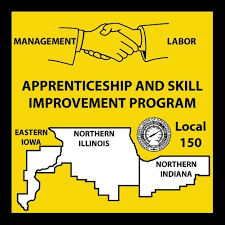Operating Engineers cover a variety of job classifications in industries such as highway and building construction (sometimes called Hoisting and Portable, descriptive of the type of equipment used), mining, toll ways, municipalities, tunnels, slag, landscaping, power plants, refineries, railroads, quarries, plants that produce rock, sand and gravel, logging, utility work such as gas, water and sewer excavation.
Whether working as heavy equipment operators, heavy equipment mechanics, or surveyors, Operating Engineers are the highly skilled persons who are found on any project using construction equipment. “Heavy Equipment” is the blanket term for numerous types of machines. Cranes, bulldozers, front-end loaders, rollers, backhoes, graders, dredges, hoists, drills, pumps and compressors are just some of the equipment utilized by Operating Engineers. In most cases, if it can push, pull, pump or lift material, rolls on tires or crawls on tracks like a tank, it falls under the jurisdiction of the I.U.O.E. Although everyone has their favorite type of machinery to operate, Operating Engineers are masters of a large variety of equipment. This versatility keeps you employable since employers’ needs vary from project to project.
Being a construction equipment operator can be a rewarding career. It requires good hand-eye coordination and a high level of physical stamina. Working outdoors is one of the advantages of being an operator, but the work is sometimes hazardous and the equipment is very noisy. Almost all of the work performed by Operating Engineers, including some of the mechanics work, takes place outdoors, in all kinds of weather and conditions. You can expect to be cold in the winter, hot in the summer, and dirty, greasy, muddy, and dusty in between.
In order to work as often as you can as an Operating Engineer, you must have reliable transportation. Each I.U.O.E. local union covers a specific jurisdictional area, a geographical area that can be so widespread as to cover an entire state or even part of another, and its members are expected to work anywhere within these boundaries. Fortunately, just as the work is spread throughout this area, so is the membership, so although you may occasionally have to stay in the area where the job is located, you will usually be able to work within reasonable automobile commuting distance, probably under 2 hours from home.
